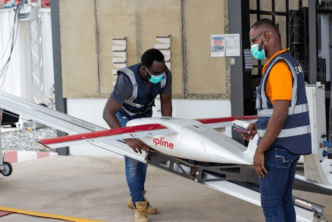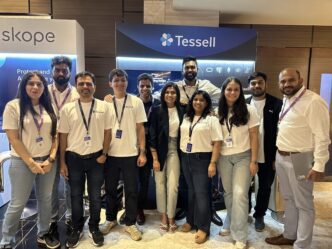North America’s startup ecosystem saw a dramatic funding spike in Q1 2025, hitting $82 billion—its highest quarterly total in three years. But nearly half of that came from one historic deal: OpenAI’s massive $40 billion SoftBank-led financing round announced on March 31. Without it, the broader venture capital landscape tells a different story—one marked by declining activity across seed and early stages.
Late-Stage Investment Surges on Mega AI Rounds
Late-stage and growth investments dominated Q1, pulling in $66.4 billion across the U.S. and Canada, according to Crunchbase data. That figure represents a fourfold increase year-over-year and a 50% jump from the previous quarter. Yet, most of this surge stems from just a few colossal AI-focused rounds.
Alongside OpenAI’s record-breaking raise, Anthropic—another leading generative AI company—secured $3.5 billion in March and $1 billion in January, backed by Google. Meanwhile, Infinite Reality, an augmented reality startup, locked in $3 billion at a $12.25 billion valuation earlier in the quarter.
Early-Stage Deals Hit Five-Quarter Low
Despite the late-stage boom, early-stage funding shrank. Investors committed just $12.4 billion to Series A and B rounds—marking the lowest total in five quarters. Round counts also dipped, highlighting growing caution among VCs.
Still, a few large deals made headlines. Apptronik, which builds general-purpose humanoid robots, landed a $403 million Series A in February—the biggest early-stage round of the quarter. Following close were Together AI with a $305 million Series B, and Kardigan, a cardiovascular drug developer, raising $300 million in Series A funding.
Seed-Stage Investment Sinks to Multi-Year Low
The seed and pre-seed market saw a steep drop, both in dollars and deal volume. Only $3.2 billion was invested across 1,016 rounds—making it the weakest quarter in years for the earliest stage of startup financing.
A significant chunk of seed funding came from just two companies. Lila Sciences, an AI-powered research platform, secured a $200 million seed round. StarTower, focused on blockchain infrastructure, followed with $50 million in February.
Though some late-reported deals could slightly boost the final numbers, the trend points to heightened investor hesitation in backing new startups.
Generative AI Dominates With Record-Breaking $54B in Funding
AI remained the star of the venture scene. Over $54 billion flowed into AI-related startups in Q1—more than any previous quarter and largely driven by OpenAI’s mega-deal. From cloud infrastructure to research platforms, AI drew intense investor interest, cementing its place at the heart of VC activity.
Exit Market Heats Up With Major M&A and IPOs
While early-stage funding may have cooled, Q1 delivered big on the exit front. The quarter saw both the largest startup acquisition ever and a high-profile AI IPO.
Google’s planned $32 billion acquisition of Wiz, a cybersecurity unicorn, broke records as the biggest private startup M&A deal to date. In total, ten venture-backed U.S. startups were acquired for $1 billion or more—the most in three years.
On the IPO side, CoreWeave, an AI cloud infrastructure provider, made a strong debut in March. The New Jersey-based firm raised $1.5 billion and reached a market cap of around $22 billion. Other notable IPOs included Metsera and Maze Therapeutics, both working on novel medicines.
A Quarter That Defied Simple Labels
It’s hard to categorize Q1 2025. Yes, the numbers were up—but mostly due to one late-stage deal. Beneath the surface, early and seed-stage investments fell, suggesting investor caution still runs deep.
At the same time, exits showed surprising strength. With Klarna and Circle filing for IPOs, Q2 could continue this momentum—though recent stock market volatility tied to new Trump administration tariffs casts a shadow.
In many ways, Q1 stands out not as the start or end of a cycle, but as a snapshot of a venture market caught between fear and opportunity—pulled forward by AI hype while retreating from broader startup risk.













